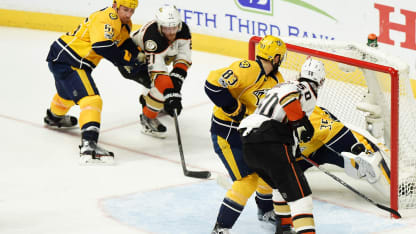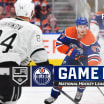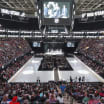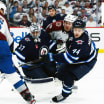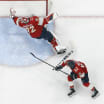"I don't think Anaheim took enough shots with the idea that, 'We'll take it and create a rebound,' " Pearn said. "Far too many times they took a shot and thought they'd score on the shot. They didn't get a lot of rebounds to put Rinne in a vulnerable spot. Nashville did a good job of covering rebounds and clearing them away, but I think Anaheim maybe had to look a little more at trying to generate those kinds of rebound opportunities. In the series, those were the chances they were taking advantage of most of the time."
Pearn said Rinne's excellence reminded him of former New Jersey goalie Martin Brodeur in his prime.
"When New Jersey was doing well in the playoffs in those years, Brodeur was so good on first shots and Jersey was so good at covering rebounds, teams started to hesitate a split second on shots they took and that played right into Brodeur's hands. He always seemed set and in the right position.
"I think that happened a bit with Anaheim in this series, that they hesitated looking for a perfect shot when probably they'd have been best served to get it away quickly to catch [Rinne] while he was still moving or to shoot to create a rebound."
Pearn also noted how the playoff games are decided by inches, or less.
"You look at how crazy some games are, you see the puck over the glass in the third period that bounced off the top of the glass," Pearn said. "So it's not a penalty to Nashville and they don't go two men short. Instead, they get the opportunity to come down and score the game-winning goal just as they kill off the penalty they had. Talk about inches, that's a prime example of how close things are."
Pearn said he didn't think the Predators were getting enough credit in one other area. Though faceoff numbers showed the Ducks with an advantage throughout the series, Pearn thought the Predators did a great job on faceoffs at key times and in the battles after scrambled draws.
"I know the faceoff chart said 43-26 for the Ducks in Game 6 but I found Nashville doing a great job on some of the key faceoffs," he said. "I look at one of the empty-net goals as a good example, that it's a faceoff that goes to the boards and Nashville wins the battle there."
